At the end of 2017, China had 240 million inhabitants over the age of 60. China is not the only country to face this aging problem, but it is particularly acute here. After years of one-child policy, the birth rate is struggling to get back on track. As we age and live longer, we have more and more elderly people, sometimes living alone in their homes. This is particularly true in Beijing and Shanghai.
In recent years, China has faced a shortage of doctors. According to the World Health Organization, China has 1.8 doctors per 1,000 inhabitants, compared to 2.5 per 1,000 in the United States and 3.4 per 1,000 in Australia. Although China is not alone in suffering from this shortage, India has less than one doctor per 1,000 inhabitants. Now the Chinese government has made health a priority.

The Chinese healthcare system has been lambasted by the public for its chaotic operations and disparity of healthcare resources between rural and urban areas. In recent years, mobile healthcare services have emerged as a convenient option for complementing the traditional healthcare system, with internet giants and startups flocking into the industry gap.
- Read also Medical Equipment market in China 2019
Many are turning to digital health and artificial intelligence to fill this gap. Technologies such as “one-minute clinics” could increase the number of people treated.
In 2014, Tencent poured $70 million USD into healthcare community DXY and $100 million USD in medical service Guahao. Alibaba is moving fast into the sector with its ambitious ‘Future Hospital’ plan, drug safety plan, a separate healthcare app. Leading startup companies like Chunyu have also raised impressive funding.
Wang yué hu shi, a home-based nursing application launched by the authorities
The National Health Committee in China is launching a home-based nursing application. The aim is to meet the increasing demand for care in an ageing country.
The application was provisionally named: “Wang yué hu shi shi“, which mean “online appointment with a nurse”. It is a kind of “Uber nurse” because it works like this platform, except that we order home care. Other countries, including France, already have this type of application. What is interesting in the Chinese model is that the scheme is being launched by the Chinese authorities to meet very strong growth in demand in a country where the demographic curve is not in shape.

Three megacities, Beijing, Shanghai and Tianjin as well as three provinces on the east coast, Jiangsu, Zhejiang and Guangdong have been selected to launch the test phase.
The application is primarily intended for elderly patients at home. At the end of 2017, China had 240 million people over the age of 60, that represents 17.3% of the population. 150 million elderly people in China suffer from chronic diseases. And 40 million of them are more than 50% disabled. In other words, they cannot travel to the hospital.
The guarantee of cheaper health costs
These home care services have a cost. We do not yet know the prices for this new application, but the objective is to offer services that are cheaper than the private applications that are rampant in China, a business that is doing well. Some do promotions, there are grouped rates if you want your injection on the same day as the neighbour for example. In general, the prices offered are five times cheaper than in hospital.
Application of medical services
For example, the application of medical services in the home offers different services depending on the qualifications of the nursing staff. The replacement a dressing by a nurse recent graduated costs 119 yuan; for a confirmed nurse it is 159 yuan (for 30 minutes of intervention), which represents 15 and 20 euros, same price for injections. There are also infusions, removal of stitches or assistance with washing and dressing for 229 yuan, or 30 euros per hour spent with the patient.
This question is important because in China today, it is mainly families who pay for care. There are also private mutuals, but in general and outside public hospitals, health remains a luxury.

Qualified and… supervised staff
For the official application, nurses must have at least five years of experience. After the repeated scandals over adulterated vaccines, the Chinese are more suspicious. The surveys also focus on the safety of health care workers. Some suggest that nurses could be tracked by GPS, with a facial recognition device as it already exists in many shops in China.
WeDoctor, the Amazon of Health Care
While companies as Google seek to unlock the secrets of immortality or unravel medical mysteries, WeDoctor is focusing on something more pragmatic: making money by pushing the boundaries of the Chinese health market slated to hit 8 trillion yuan ($1.2 trillion) by 2020.
This is how, as soon as you’re diagnosed as diabetic, ads for treatments show up on social feeds. You get alerts on health supplements, maybe nutrition tips. Prompts on insurance policies pop up on your phone.
That’s not a scene from Minority Report. It’s a manifestation of the trove of data harnessed by WeDoctor, one of China’s most richly valued online health outfits, in an ambitious quest to upend the business of personal care. The ads may not be conspicuous – they can be buried within a pitch about chronic diseases – but the target is precise: you.
“We believe online technology platforms, especially those focusing on health care like us… will be acknowledged and rewarded by the market”said Jerry Liao Jieyuan, CEO and founder of WeDoctor.
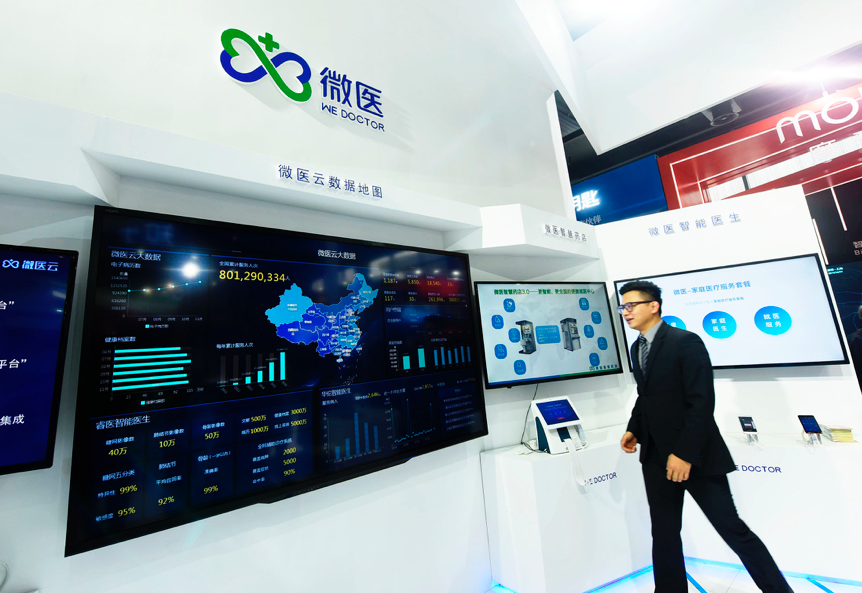
180 million users
Founded in 2010, WeDoctor is now a user base of more than 180 million users. It’s also one of several online health care providers that have come up in recent years to tackle the problem of China’s overstretched and underfunded hospitals, where waiting times are long and patients reportedly have to pay large amounts of money to get appointments with specialists. The company now provides health care support services to more than 2,700 hospitals, 240,000 doctors and 160 million platform users in China.
Recently, WeDoctor announced a joint venture with idsMED, a leading medical supply chain solutions company and member of Fung Fung Group, which will be China’s first smart medical supply chain solutions and procurement company.
In May, WeDoctor announced a strategic partnership with an entity formed by the merger of two of Hong Kong’s best-known fertility clinics, Reproductive Healthcare and The Women’s Clinic.
Jeff Chen, WeDoctor’s Chief Strategy Officer, told the South China Morning Post that the new medical company will control 30% of the in vitro fertilization market in Hong Kong.
Tencent Ecosystem
Backed by Tencent Holdings Ltd, WeDoctor, the more than $5 billion startup, joins a growing contingent of tech giants hoping to revolutionize the online health industry by leveraging user data for marketing to drug manufacturers.
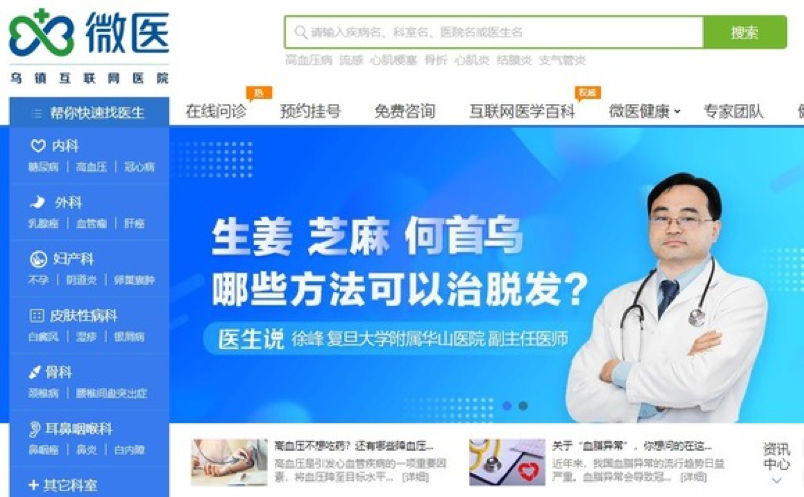
Ping An Good Doctor, artificial intelligence and medicine
In China, a future doctor’s appointment could mean visiting a local shopping center and diving into a power booth for a virtual appointment.
Earlier this month, Ping An Good Doctor, a one-stop healthcare ecosystem platform, showcased a tiny unstaffed clinic that employs artificial intelligence. Patients can sit in the three-square meter clinic and chat with a cloud doctor, called AI Doctor, about their symptoms.
The AI Doctor’s role is to gather medical history and come up with a diagnosis plan, which will then be passed on to a specialist consultant via telemedicine. The miniature clinics, called “One-Minute Clinics” can then connect patients with a doctor from Ping An Good Doctor’s internal medical team.
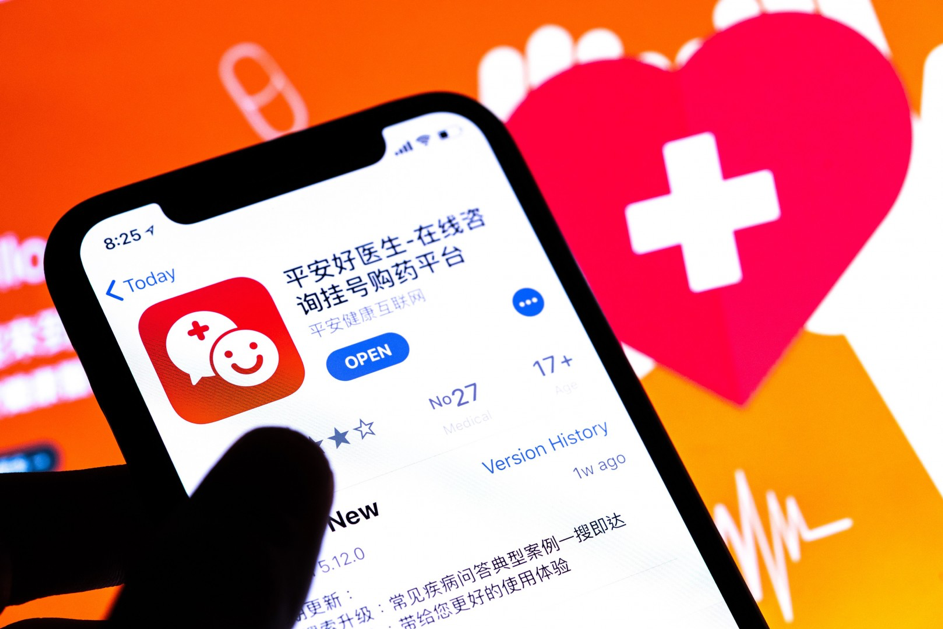
The system will also include an intelligent medicine booth where patients will be able to obtain their medications after being diagnosed. It will include more than 100 common drugs.
AI doctor
Our ‘AI Doctor’, Ping An Good Doctor’s world-leading technology, plays a key role. ‘AI Doctor’ was developed by the R&D team with over 200 world-class AI experts and has accumulated more than 300 million pieces of consultation data. When patients use the consultation service in One-minute Clinics, ‘AI Doctor’ acts like a real doctor and collects the users’ symptoms and illness history before providing a preliminary diagnostic suggestion. The experienced real doctor then joins the consultation with supplementary recommendations to ensure the accuracy of the whole consultation process.”
“We plan to build hundreds of thousands of these unstaffed clinics across the country in three years”said Wang Tao, founder and CEO of Ping An Good Doctor, told South China Morning Post.
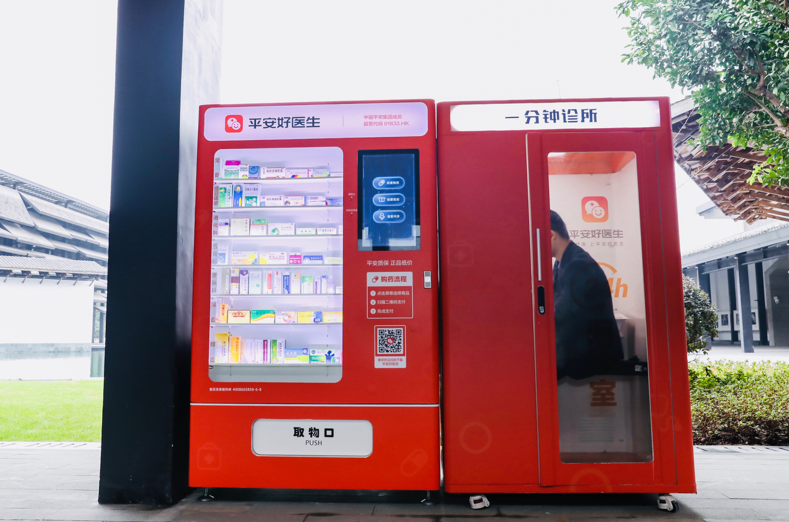
Xingren Doctor, a patient management support application for doctors
Chinese mobile health app, Xingren Doctor, launched in September 2014 claims to have accumulated over 130,000 users, announced Wednesday that it has raised 200 million RMB (roughly $32 million USD). The investment will go primarily into product development and improving their overall business model, said Martin Shen, founder and CEO of the company.
Xingren Doctor is a mobile healthcare app targeted at doctors, helping them to better manage patients, workplace communications and industry updates.
Available for both iOS and Android, doctors in China are using this app to communicate and track the status of their patients, contact other doctors on the network, or follow trends within their specialties.
The Story…
iHealth Management Consulting (Shanghai) Co., Ltd., the company behind Xingren Doctor, is also the developer of Kanchufang, a user-generated database that has collected more than 70,000 information points and medical case records. The company is now in the process of shutting down the Kanchufang service and shifting the full focus of its data pool to Xingren Doctor this year.
Its WeChat integration that allows Xingren to capitalize on messaging tools. Each doctor can get a Xingren account on WeChat after registration. Patients can follow the Xingren accounts of their doctors on WeChat and ask clinical questions directly on the platform.

Partnerships between foreign companies
Investors and overseas companies have the legitimacy and rights to enter the health care sector in China. Establishing close partnerships with public institutions and investing in promising health systems.
These actors do not have the necessary Research and Development department to develop their own products and are only looking to improve products already exist on the market.
To compensate for this, many local groups are seeking partnerships with foreign pharmaceutical companies to develop unique and innovative pharmaceutical products. This solution provides a win-win situation by reducing the constraint faced by foreign companies when entering the Chinese market and the duration of drug approval processes on the market, which can take more than 5 years.
How to market your foreign health brand in China or promote your services to attract Chinese customers?
With more than 800 million Chinese citizens connected online, Digital is the most effective solution. The one you have in China is the largest and most closed online system in the world. Chinese platforms dominate and should be used by foreign healthcare companies to increase their online visibility and reputation as well as their product range and associated health benefits. Digital marketing is also the most cost-effective method in the medical field offering a fast, measurable and substantial return on investment.
EREPUTATION, A KEY CRITERION IN CHINA
When it comes to health care, the Chinese do more research than any other sector. It is therefore essential to develop your online reputation on forums, in e-media and on platforms related to Baidu in order to inspire trust, respect and build a loyal and quality customer base. In China, it is vital for any medical or pharmaceutical company to invest in e-reputation and build trust between Chinese patients and the company.
We help healthcare companies with the management of marketing forums and public or press relations.
Baidu Search Engine
Working on community management on the forums is an excellent way to enhance your reputation and rank in Baidu’s search results because the majority of these forums themselves are very well ranked.

ENGAGING PATIENTS THROUGH SOCIAL NETWORKS
The most popular platforms that include the vast majority of Chinese users are WeChat and Weibo. In China, it is essential to give a significant part of your marketing strategy to social networks. Social media allows you to gain visibility and create a closer relationship with your Chinese patients. As with all levels of customer relations, Chinese consumers want to be involved in their health decision-making process.

CREATION OF A WECHAT ACCOUNT
WeChat now has more than 900 million active monthly users. An average user spends about 2.5 hours per day on the application. It is essential for a company that wishes to address a Chinese clientele to develop a strong presence on the number one application in China.

PRESENCE ON WEIBO
Weibo is the second most used social network in China. It’s a mix between twitter and Facebook, even better. Weibo is very popular because it is the first network where the Chinese can express themselves. The platform, of course, is sometimes censored by the government, but less compared to other media, which is why users love Weibo so much.
For health brands, it is also an interesting platform, as Weibo allows brands to communicate with short messages and images. On Weibo, you don’t need to be connected with people or brands to view the content they publish. The content is publicly accessible.
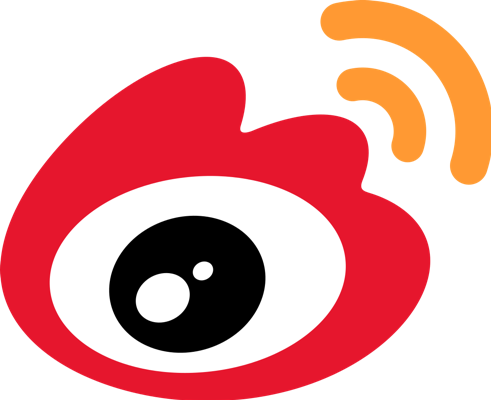
ATTRACT PATIENTS THROUGH COLLABORATIONS WITH INFLUENCERS
In China, as elsewhere in the world, influencers (or KOL: Key Opinion Leaders) can be very helpful to win more credibility. Implementing a commitment strategy among these influencers is a fairly common strategy. In China, influencers are very powerful. Users trust them more than brands because of all the scandals that have occurred before.

INTEGRATE CHINESE E-COMMERCE PLATFORMS
In China, health or pharmaceutical companies must sell their products on e-commerce platforms such as JD or Tmall. These platforms are very popular and only sell high-end and verified products. You can’t find counterfeit products on JD or Tmall. They only accept quality brands with a good image and a good e-reputation.
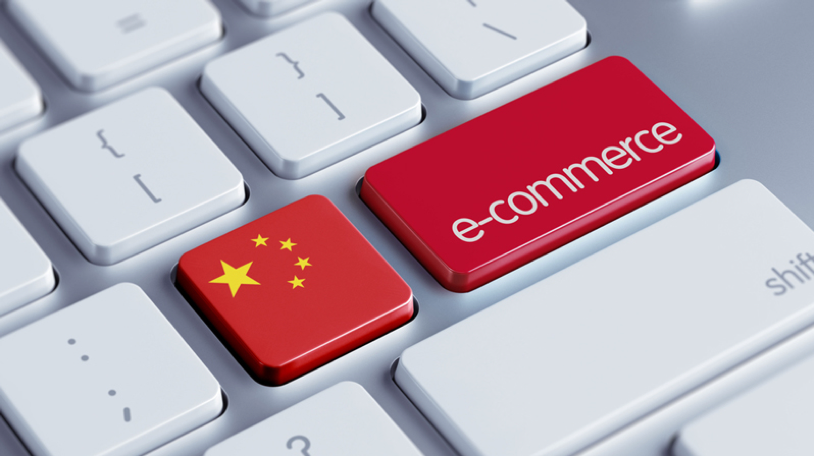
GMA WHO ARE WE?
Designing the right strategy for this market is the key to success. We are an agency specialized in digital and we have worked with many companies in the pharmaceutical and health sector. Our website is intended to be informative and useful for professionals wishing to develop in China.
- Our Agency sets up services to carry out your projects in this booming market.

Consult our complete market study on the subject:
